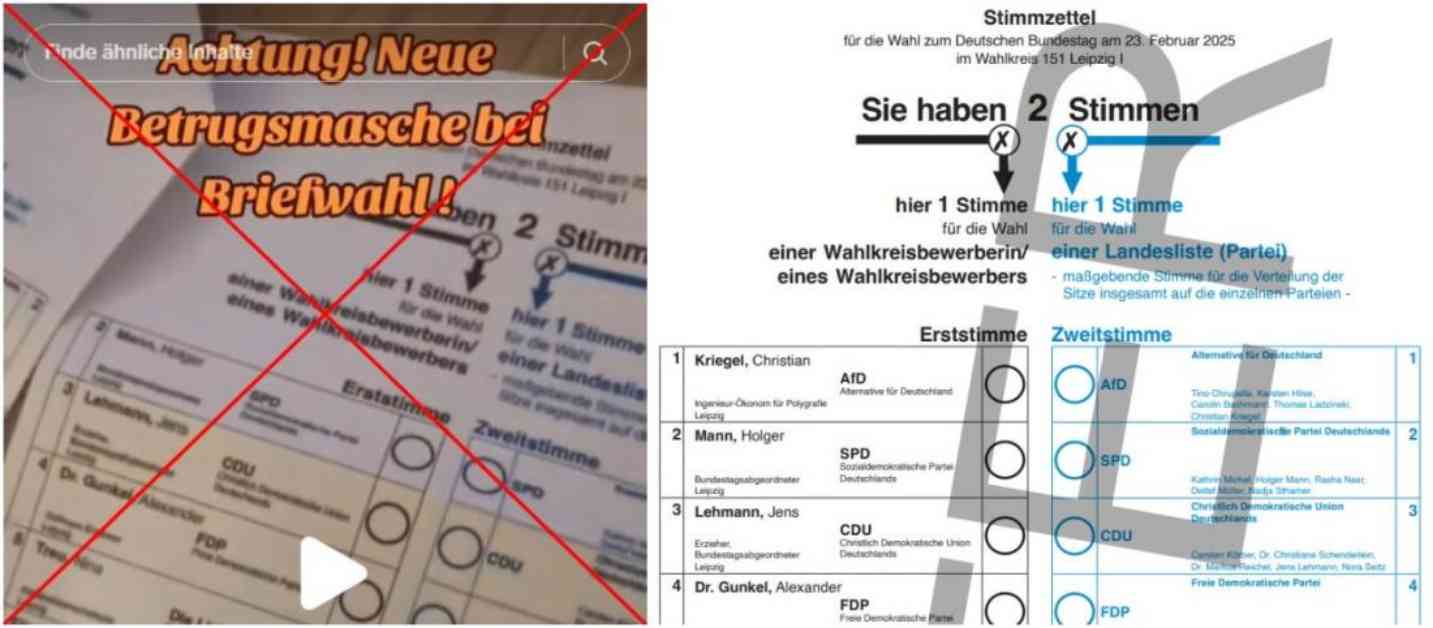In a recent report by Spiegel, it was revealed that a disinformation campaign originating from Russia has been targeting the upcoming German federal elections. The campaign involves the spread of fake videos online, with the goal of influencing the election in favor of the pro-Russian party Alternative for Germany (AfD). This alarming revelation comes just days before the election is set to take place on February 23rd.
The videos in question depict alleged manipulation of mail-in ballots in Leipzig’s constituency 151, where the AfD is conspicuously missing from the ballot papers. One video features a voice claiming that the AfD is absent from the ballots, while another shows a person expressing outrage at the perceived fraudulence of the situation. These videos have sparked concerns about the integrity of the election process and the potential impact on the election results.
Leipzig city officials have investigated the videos and determined that there are no corresponding misprints on the ballots. They have issued a statement denouncing the forged ballots as part of a deliberate and targeted campaign to influence the election. This revelation has raised alarms about the prevalence of disinformation and foreign interference in democratic processes.
Russian Disinformation Campaign Uncovered
According to information from Spiegel, security sources have linked the fake videos to a Russian propaganda group known as Storm-1516. This group has been identified by Microsoft IT experts as a state-sponsored entity that specializes in spreading disinformation. Storm-1516 has previously been involved in spreading false information during the 2024 US election, including circulating fake videos and anti-Democratic propaganda.
The involvement of Storm-1516 in the German election disinformation campaign raises concerns about the extent of foreign interference in democratic processes. The parallels between their actions in the US election and the current situation in Germany indicate a pattern of behavior aimed at undermining the integrity of elections and manipulating public opinion.
Spread of Disinformation
The fake videos have been circulating online since Monday, posted by anonymous accounts posing as legitimate sources. While some versions had limited views, others gained significant traction, with one post amassing over 500,000 views and 1,200 shares. The disinformation quickly spread to other social networks, with accounts amplifying the false narrative.
Efforts to combat the spread of disinformation have been met with mixed results, as a YouTube post exposing the videos as fake garnered 300,000 views but also drew attention to the misleading content. The widespread dissemination of false information highlights the challenges of combating disinformation in the digital age and the need for greater awareness and vigilance among the public.
The impact of the Russian disinformation campaign on the German election remains to be seen, but it serves as a stark reminder of the threats to democracy posed by foreign interference and disinformation. As voters prepare to cast their ballots, the integrity of the election process is more important than ever, requiring a concerted effort to combat misinformation and safeguard the democratic process.

















